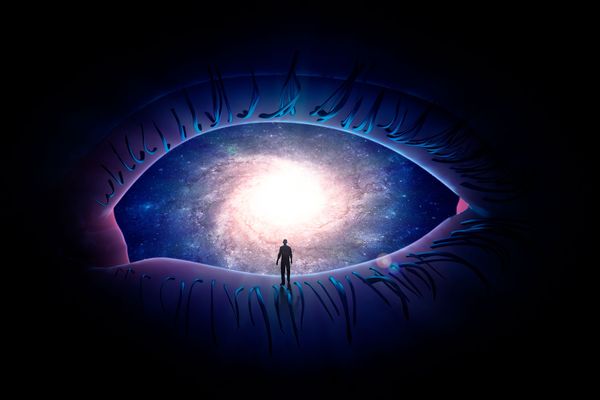“Fringe”, “weird” and “unthinkable” are perfectly acceptable descriptors any science writer might use when rightfully denouncing some hare-brained professor’s paper that suggests, for instance, the North American sasquatch is the leading driver of climate change, or that Elvis Presley and Tupac Shakur are responsible for kidnapping Shelly Miscavige. Science journalism has a job to do — and that includes verbally smacking the pseudoscience out of academic hustlers to defend the dignity of both the reader and the science. We stan a scientific diss track in this shop, and I’d gladly lend my pen to such a cause.
But when science writers dismiss robustly-debated philosophical theories this way — like panpsychism, one well-known theory about the possible nature of subjective consciousness even in inanimate objects — they look less like erudite champions of empirical truth, and more like a Victorian drawing room full of phrenologists scoffing at William James’ notions of psychology while proclaiming that “there isn't a single head-bump of evidence to support this theory.”
At least, that’s what they looked like this past week when Popular Mechanics science writer Stav Dimitropoulos offered a fresh bit of nuanced reporting on the renewed popular interest around the philosophical theory of panpsychism. To grossly oversimplify, the theory posits that consciousness isn’t just the currently scientifically-inexplicable emergent property of a human brain as many consider it now, but a property of pretty much any self-organizing system of material things. Panpsychism’s principles stretch back to human’s earliest notions of classical philosophy but have also evolved right alongside the sciences (like, you know, theories within humanities disciplines do).
Panpsychism winks at us from our species’ inquisitive past and seems to ask, “Aren’t you the same hairless apes that once laughed at a guy for suggesting all matter was ultimately made of vibration?
Its core concepts have been advocated for by the likes of Nobel Prize winner Roger Penrose, as well as physicists like Author Eddington and David Bohm, and even William James himself. As a theory, panpsychism challenges us to consider whether we featherless bipeds might be thinking a bit too primitively when we assume objectively extant concepts we have no real way to quantify — like consciousness — can only be produced by neuronal sparks of the electrified hamburger meat between our ears.
Panpsychism winks at us from our species’ inquisitive past and seems to ask, “Aren’t you the same hairless apes that once laughed at a guy for suggesting all matter was ultimately made of vibration? Do you think your primitive little frontal cortex is equivalent to the skull of Zeus, and that the totality of all possible wisdom springs from it fully armored as Athena?”
Want more health and science stories in your inbox? Subscribe to Salon's weekly newsletter Lab Notes.
When fuzzy terms like “artificial superintelligence” are getting tossed around to describe black-box processes of a computer network you can pay to be your girlfriend, I’d say panpsychism’s questions are worth more than an embarrassingly tone-deaf snicker from science writers. Similarly well-timed amid all the recent heady research into quantum mechanics, Dimitropoulos’ rather eloquent piece invites readers to examine the current limits of material physics’ theories and see what the brainiacs in humanities departments have to say about self-awareness and the mind’s role in the wider universe.
But judging by the frantic oinking of science writers who quickly piggybacked off her click-traffic, you’d have thought the article was a crayon-scrawled defense of flat-earthers. Seemingly affronted by the possibility that a philosophical theory might offer a uniquely interdisciplinary approach to a problem that physics was never asked nor meant to solve alone, a gaggle of presumably muttonchopped science writers eagerly charged into the latest skirmish of a decades-old fray between philosophers and physicists.
In overindulgent headlines and ill-advised body-copy, would be defenders of the faith of Scientism gleefully celebrated missing the entire point of panpsychism across some widely circulating and uninformed articles that I’d rather not further promote.
We need your help to stay independent
It’s disappointing to see but not a surprise. A lack of curiosity about the possibilities of consciousness is the hallmark of anti-science attitudes, even among those appointed to herald the sober inquiry of an awe-striking world of which the human race is but one fleeting member. And to do this job right — hell, to even get beyond our own trembling ontological frailty long enough to learn something about this existence — we have to fight anti-science attitudes in every quarter, even our own.
We should start with our own beliefs. To that end, the most anti-science belief you can hold isn’t that the earth is flat, that consciousness may be more than human thought, or that existence may be more than we can quantify at the moment — it’s that science is a religion. And when you treat science like a religion, like a framework for limiting the interpretation of the world’s possibilities, rather than like a framework for discovering those possibilities — you stop writing science journalism and you start writing Scientism apologia.
When your congregation zealously overestimates the epistemological functionality of empiricism in the work of logical positivism, you trap the conversation of science and consciousness in your lethally boring Vienna wagon-Circling. And in this way, yes, you insult the dignity of both the reader and the science.
An earlier version of this article originally appeared in Salon's Lab Notes, a weekly newsletter from our Science & Health team.

Shares